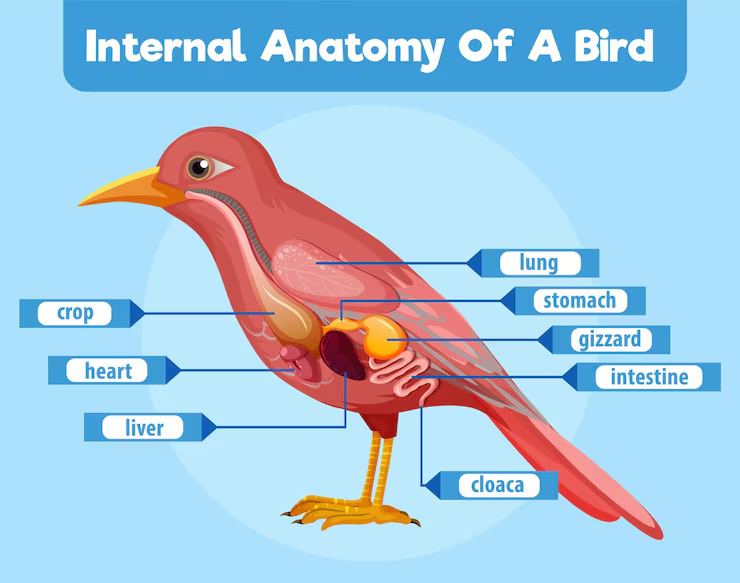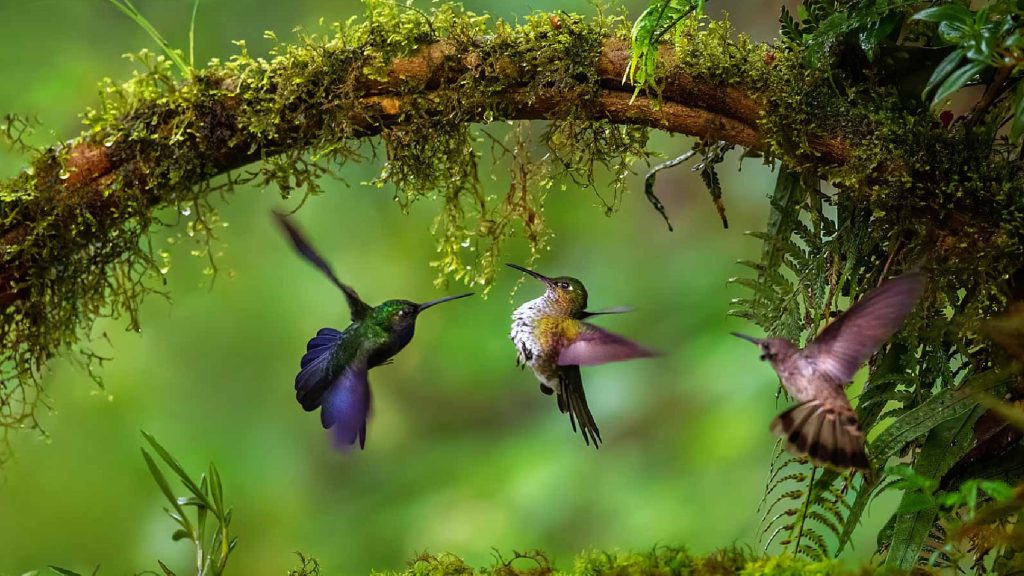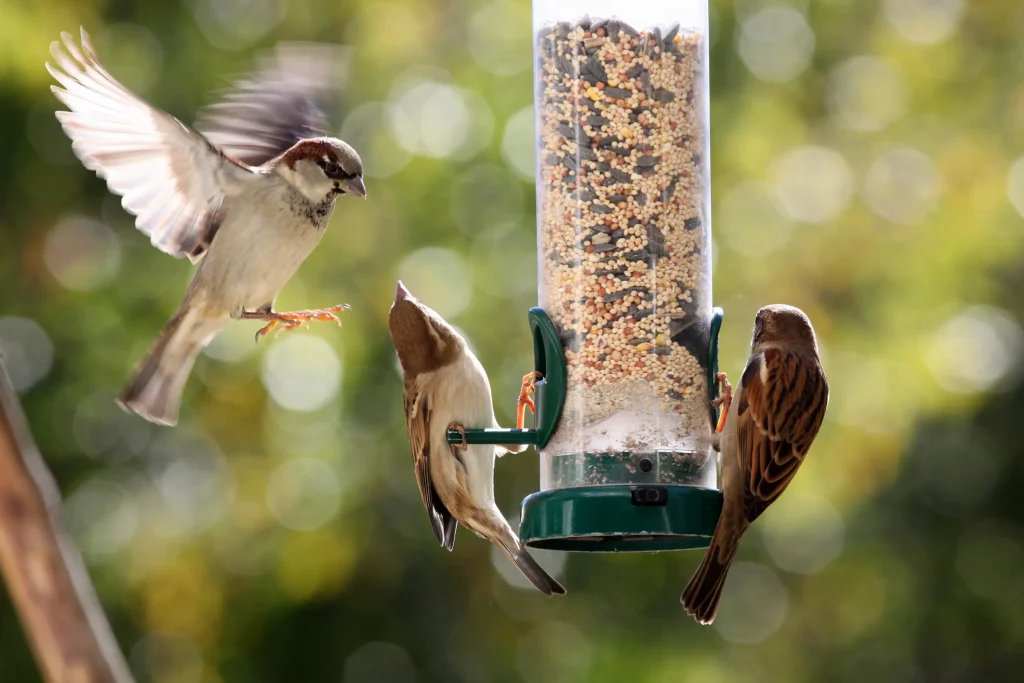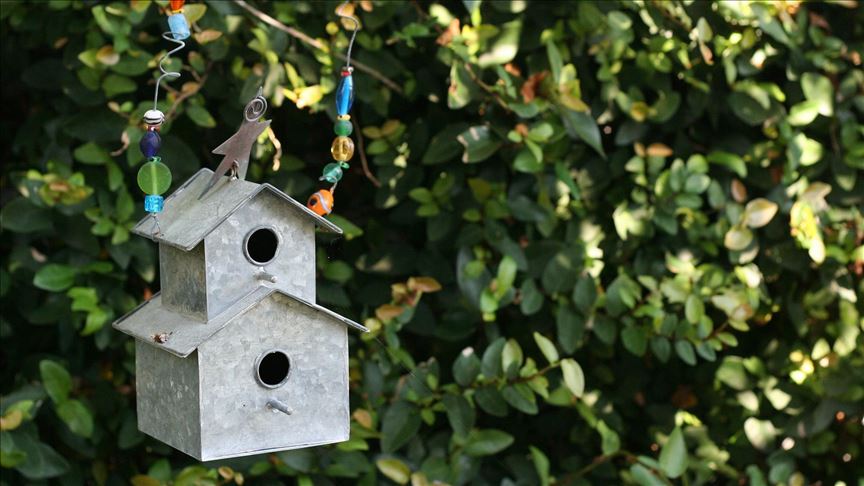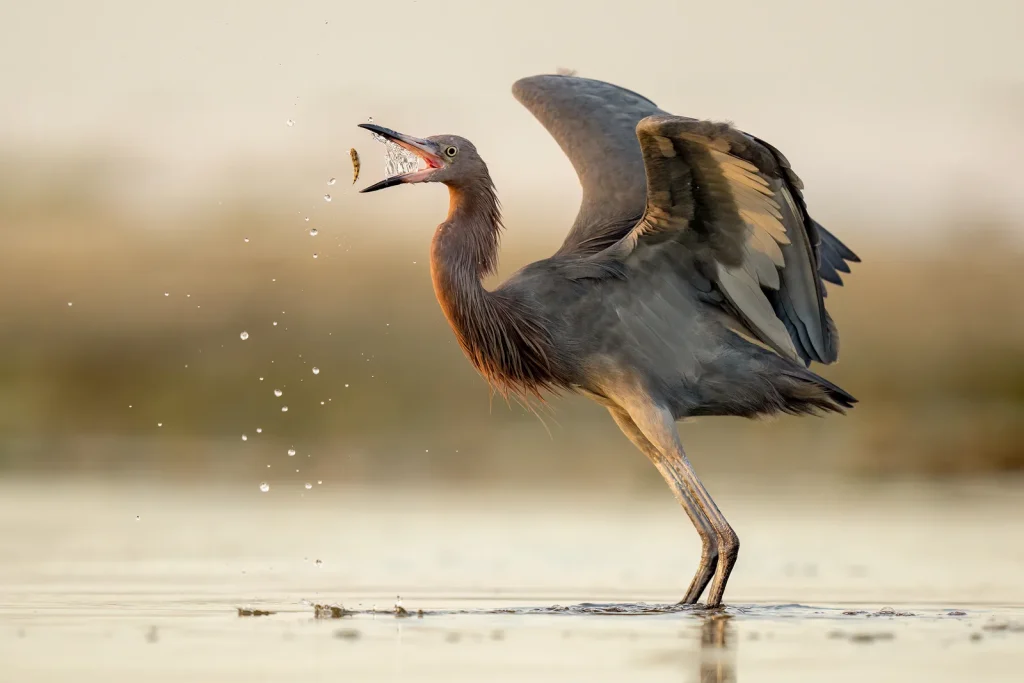Have you ever wondered if the bird seed you scatter outside could actually grow into plants? It’s a simple question with a surprising answer that might change how you think about feeding birds and gardening.
If you’re curious about whether you can turn that bird seed into a blooming garden, this article is for you. Keep reading, and you’ll discover the truth behind planting bird seed, plus tips to help your garden thrive. Your backyard could become a green oasis faster than you think!
Choosing The Right Bird Seed
Choosing the right bird seed is important for both feeding birds and planting. Not all seeds attract birds or grow well in your garden. Selecting seeds carefully ensures healthy plants and happy birds. Knowing which seeds are loved by birds, which can sprout, and which to avoid helps you make the best choice.
Common Seeds Birds Love
Many birds prefer specific seeds. Black oil sunflower seeds attract a wide variety of birds. Nyjer seeds are small and loved by finches. Millet is popular with ground-feeding birds like sparrows and doves. These seeds offer good nutrition and are easy to find in stores.
Seeds That Actually Grow
Not all bird seeds will grow into plants. Sunflower seeds can sprout and grow sunflowers. Millet and sorghum seeds also grow well in gardens. Avoid mixed seed packs unless you know the contents. Planting pure, untreated seeds increases chances of growth. Water and soil quality also affect seed sprouting.
Avoiding Harmful Seeds
Some bird seeds are treated with chemicals harmful to plants and birds. Avoid seeds with coatings or additives. Large seeds like peanuts often do not grow and can mold. Seeds from wild bird mixes may contain invasive species. Choose organic or untreated seeds for safe planting and feeding.

Credit: www.youtube.com
Preparing Your Garden For Planting
Preparing your garden for planting bird seed sets the stage for a healthy and thriving growth. Proper preparation ensures the seeds have the best chance to sprout and grow strong. Understanding soil, timing, sunlight, and water needs helps create an ideal environment for your plants.
Soil Requirements
Good soil is loose and drains water well. Avoid heavy clay or compacted soil. Mix organic matter like compost to improve texture and nutrients. Test soil pH to keep it near neutral, between 6.0 and 7.0. This balance helps seeds absorb nutrients easily.
Best Planting Seasons
Plant bird seed in early spring or late summer. These seasons offer moderate temperatures and moisture. Avoid planting in extreme heat or frost. This timing supports better germination and reduces seed loss.
Sunlight And Water Needs
Bird seed plants need full sun for at least six hours daily. Choose a spot that gets plenty of sunlight. Water regularly but do not overwater. Keep soil moist, especially during seed sprouting. Too much water can cause seeds to rot.
Planting Bird Seed Successfully
Planting bird seed can be a fun and rewarding activity. It allows you to grow plants that attract birds to your garden. Success depends on choosing the right seeds and giving them proper care. Understanding the planting process helps seeds sprout and grow strong. The right conditions make a big difference for healthy plants.
Focus on soil quality, moisture, and sunlight. These factors help seeds germinate quickly. Protecting seeds from birds and pests also improves growth chances. With simple steps, you can enjoy beautiful plants and more birds visiting your yard.
Step-by-step Planting Guide
- Choose fresh bird seed with no damage or mold.
- Prepare loose, well-draining soil in pots or garden beds.
- Scatter seeds evenly on the soil surface or lightly cover them.
- Water gently to keep soil moist but not soaked.
- Place seeds in a sunny location with good air flow.
- Keep soil moist during the germination period.
- Thin seedlings if they grow too close to each other.
Tips For Germination
- Use a spray bottle for gentle watering to avoid seed displacement.
- Maintain a consistent temperature between 60°F and 75°F for best results.
- Cover seeds with a thin layer of soil to retain moisture.
- Ensure seeds get at least 6 hours of sunlight daily.
- Check soil moisture daily and water as needed.
- Use a clear plastic cover to create a mini greenhouse effect.
Preventing Seed Loss
- Use netting or mesh covers to protect seeds from birds.
- Place small rocks or mulch around seeds to prevent wind scatter.
- Water seeds early in the morning to avoid drying out.
- Avoid heavy watering that can wash seeds away.
- Choose a sheltered planting spot away from strong winds.
- Monitor seedlings regularly for pests and remove any threats.

Credit: community.giffgaff.com
Caring For Your Bird Seed Plants
Caring for your bird seed plants is essential to ensure they grow healthy and produce vibrant flowers or seeds. These plants often need consistent attention, but the rewards are worth the effort. Understanding how to water, fertilize, manage pests, and maintain them will help you enjoy a thriving garden.
Watering And Fertilizing
Bird seed plants generally prefer well-drained soil that stays moist but not waterlogged. Water them deeply once or twice a week, depending on the weather and soil dryness. Overwatering can cause root rot, so check the soil moisture before adding more water.
Fertilizing helps your plants grow strong and produce more seeds. Use a balanced, slow-release fertilizer every 4-6 weeks during the growing season. You can also add compost or organic matter to improve soil nutrients naturally.
Pest And Disease Control
Bird seed plants can attract pests like aphids, caterpillars, and beetles. Regularly inspect your plants for signs of damage such as holes in leaves or sticky residue. Early detection lets you act quickly with natural remedies like neem oil or insecticidal soap.
Diseases such as powdery mildew or fungal infections may develop in humid conditions. Ensure good air circulation around your plants by spacing them properly and removing any dead or infected foliage immediately. This prevents the spread and keeps your garden healthy.
Pruning And Maintenance
Pruning helps your bird seed plants stay tidy and encourages new growth. Remove dead, damaged, or diseased stems regularly to avoid stress on the plant. Pinching back the tips can also stimulate bushier growth and more seed production.
Keeping your garden clean by clearing fallen leaves and debris reduces the chances of pests and diseases. Do you notice any part of your plant struggling? Trimming it back early can save the rest of the plant and improve overall health.
Attracting Birds To Your Garden
Planting bird seed can transform your garden into a vibrant bird haven. Choose seeds that match local bird preferences to attract diverse species. Native plants and feeders can further enhance the environment, providing food and shelter.
Attracting birds to your garden can be a delightful and rewarding experience. Not only do birds add vibrancy and life to your outdoor space, but they also contribute to the ecological balance by controlling pests and pollinating plants. By planting bird seed and creating an inviting habitat, you can transform your garden into a sanctuary for these feathered friends.Creating A Bird-friendly Habitat
To attract birds, consider the layout and vegetation in your garden. Incorporate native plants, shrubs, and trees that provide food and shelter throughout the year. Use a mix of plant heights and types to mimic natural bird environments. Dense bushes offer protection, while taller trees can serve as vantage points for birds to survey their surroundings. Avoid using pesticides, as they can harm birds and reduce the insect population they rely on for food. Instead, let your garden become a natural haven where birds can thrive.Using Feeders And Water Sources
Bird feeders are an excellent way to supplement the natural food sources in your garden. Choose feeders that are easy to clean and refill, ensuring they remain inviting to birds. Place feeders at varying heights and in safe locations away from predators like cats. This will make birds feel secure while they dine. Don’t forget to add a water source. A birdbath or a small fountain can provide much-needed hydration and a place for birds to bathe, enhancing the appeal of your garden.Seasonal Bird Attraction Tips
Different seasons bring different bird species to your garden. In spring, plant flowers that bloom early to attract migrating birds looking for nectar and insects. In summer, offer fruits and berries by planting bushes like elderberry or serviceberry. These provide a natural feast that attracts a variety of birds. Autumn is a great time to add seed-bearing plants like sunflowers and coneflowers. As winter approaches, keep feeders stocked with high-energy seeds to help birds survive the colder months. With these strategies, your garden will become a year-round haven for birds, providing endless enjoyment and ecological benefits. What steps will you take to make your garden more bird-friendly?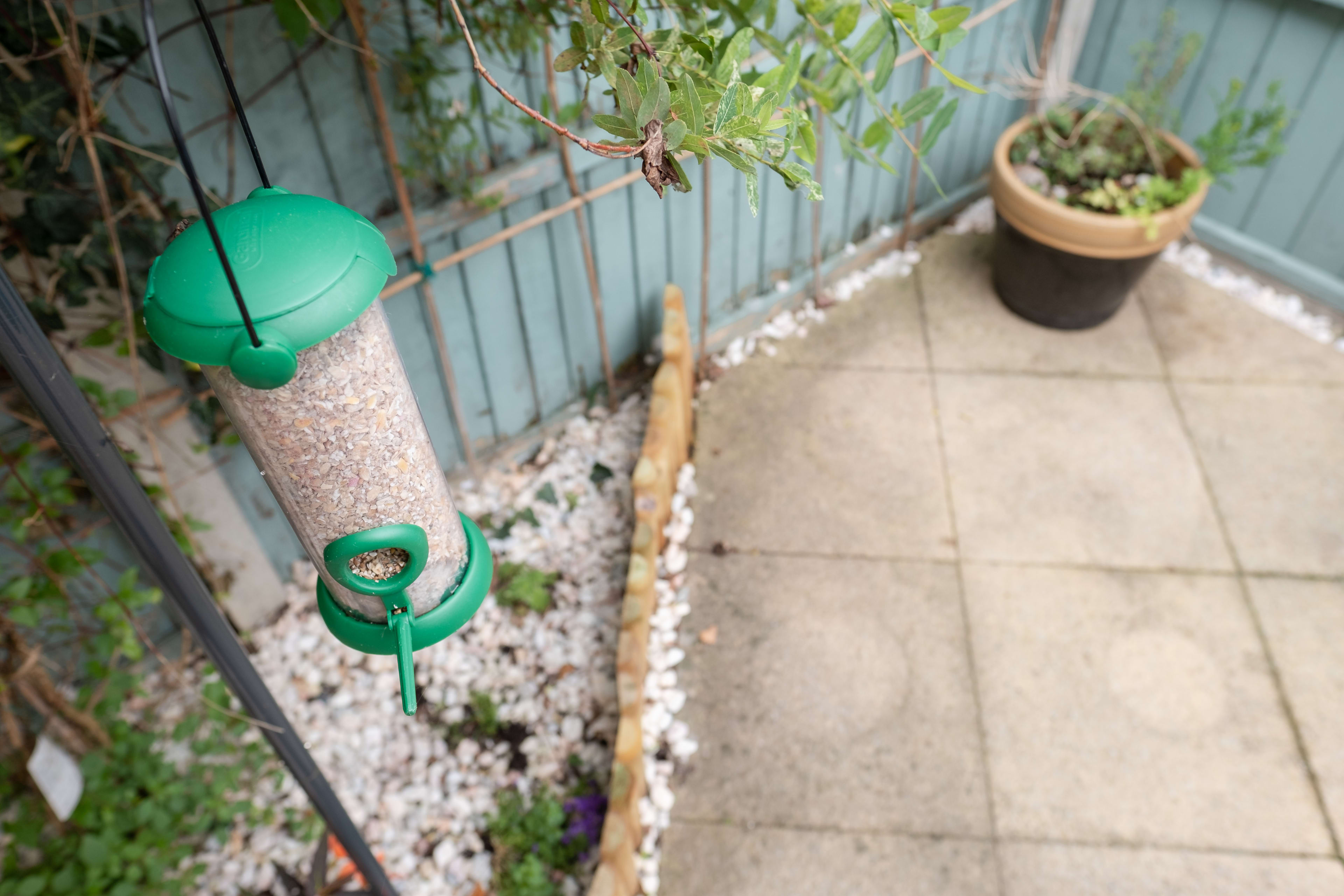
Credit: dengarden.com
Common Challenges And Solutions
Planting bird seed can be rewarding but comes with challenges. Understanding common problems helps you grow healthy plants from bird seed. Here are some frequent issues and ways to fix them.
Dealing With Weeds
Bird seed often contains weed seeds. These can grow quickly and crowd your plants. Removing weeds early is vital to protect young seedlings.
- Use a thin layer of mulch to block weeds.
- Pull weeds gently by hand to avoid disturbing plants.
- Water plants carefully to help them grow stronger than weeds.
Protecting Seeds From Wildlife
Bird seed attracts animals like squirrels and birds. They may eat seeds before they sprout. Protecting seeds is key for success.
- Cover seeds with a light net or cloth.
- Use cages or barriers around the planting area.
- Plant seeds in less visible spots to avoid wildlife attention.
Handling Poor Germination
Seeds may not sprout well due to poor quality or conditions. Improving germination increases your chances of success.
- Use fresh, high-quality bird seed for planting.
- Keep soil moist but not soaked to help seeds grow.
- Provide enough sunlight for seedlings to thrive.
Frequently Asked Questions
Can You Grow Plants From Bird Seed?
Yes, some bird seeds like sunflower or millet can sprout. However, many commercial bird seeds are treated and may not grow well.
Is Bird Seed Good For Starting A Garden?
Bird seed can germinate but is not ideal for gardening. Seeds may be mixed or processed, reducing growth success.
What Types Of Bird Seed Can Be Planted?
Sunflower, millet, and safflower seeds often sprout well. Avoid treated or coated bird seeds as they may not grow.
How Long Does Bird Seed Take To Sprout?
Most bird seeds take 7 to 14 days to sprout under ideal conditions. Proper soil and moisture are essential.
Conclusion
Planting bird seed can bring surprising results in your garden. Some seeds grow well and attract birds at the same time. Not all bird seeds sprout, so choose the right types carefully. Watching plants grow from bird seed adds joy to gardening.
Try it yourself and enjoy nature close to home. Small efforts can lead to a lively, green space. Give bird seed planting a simple chance today.

